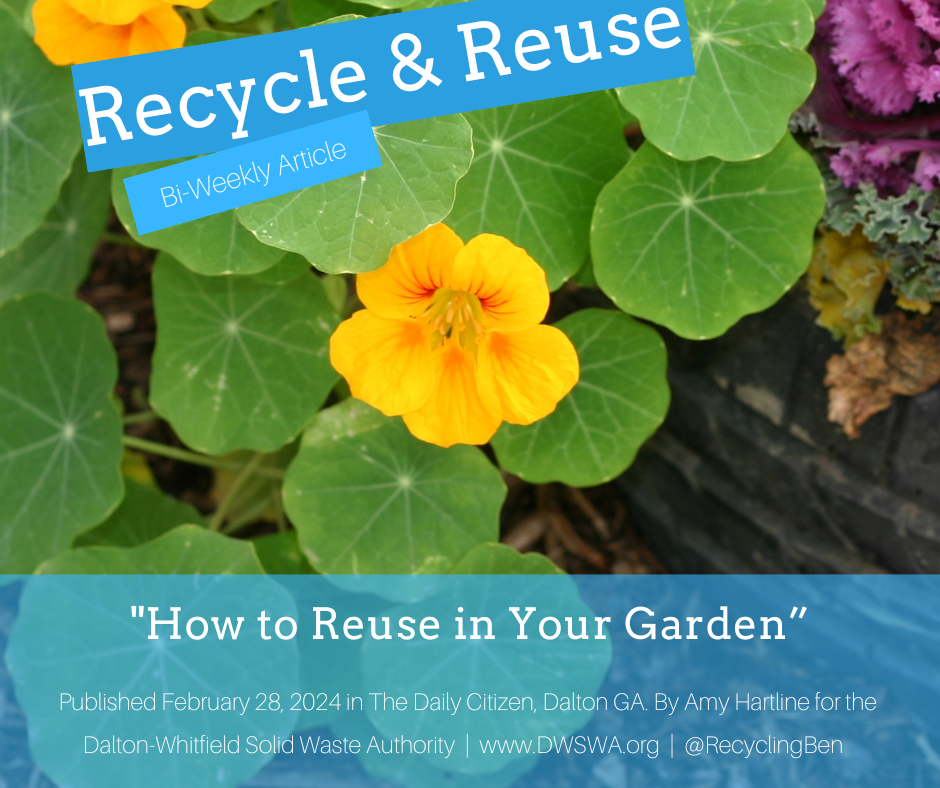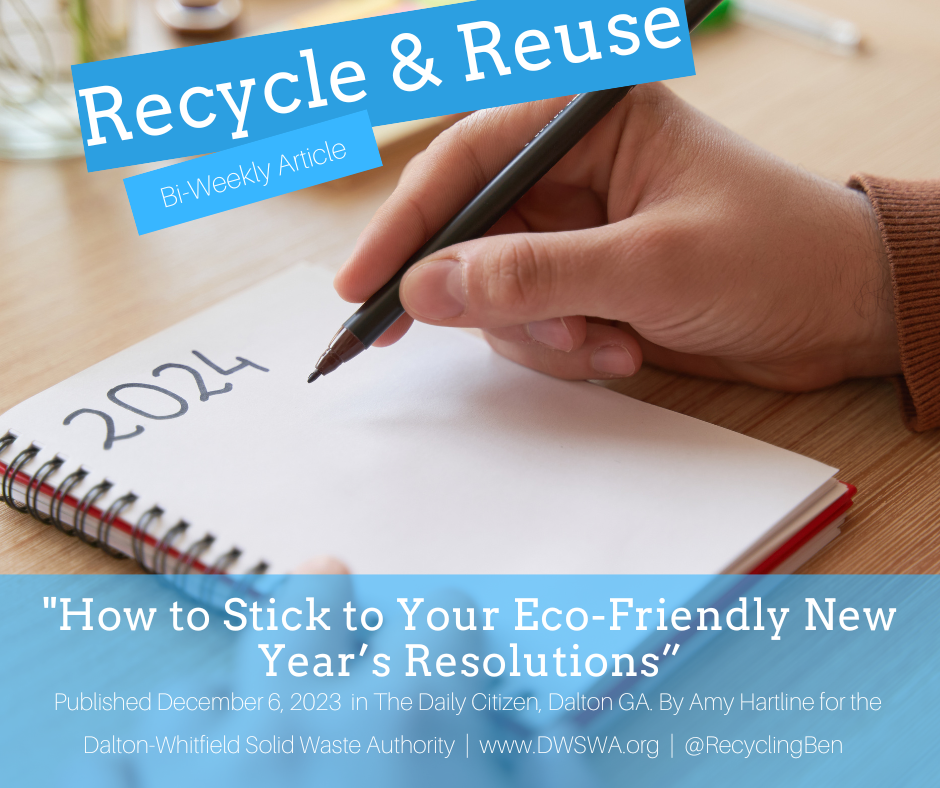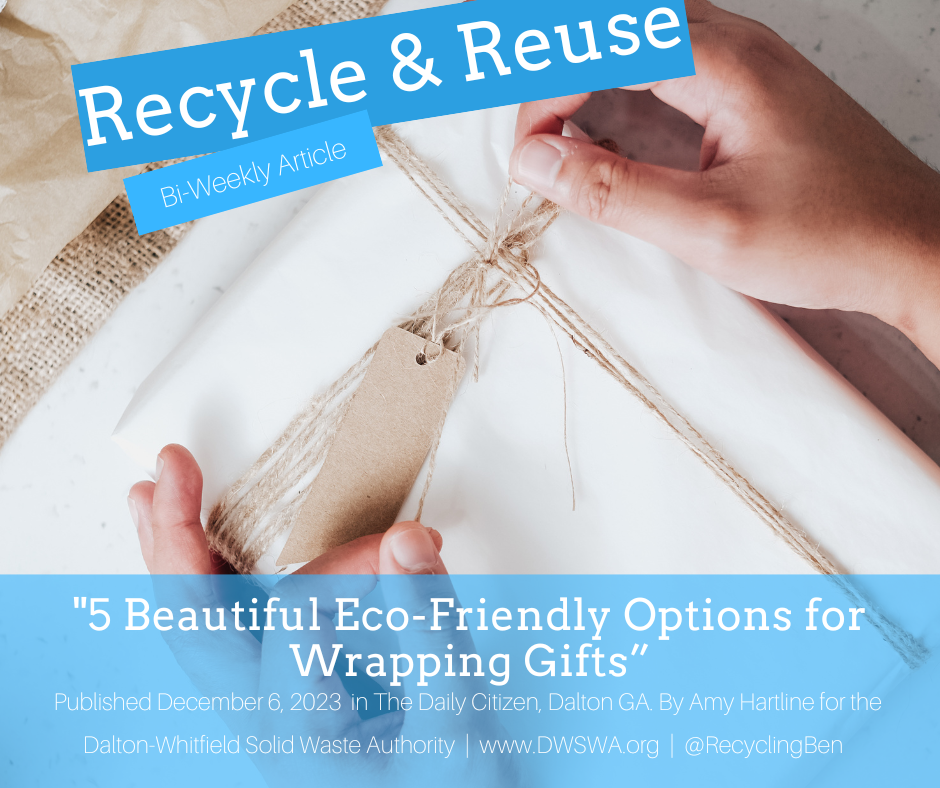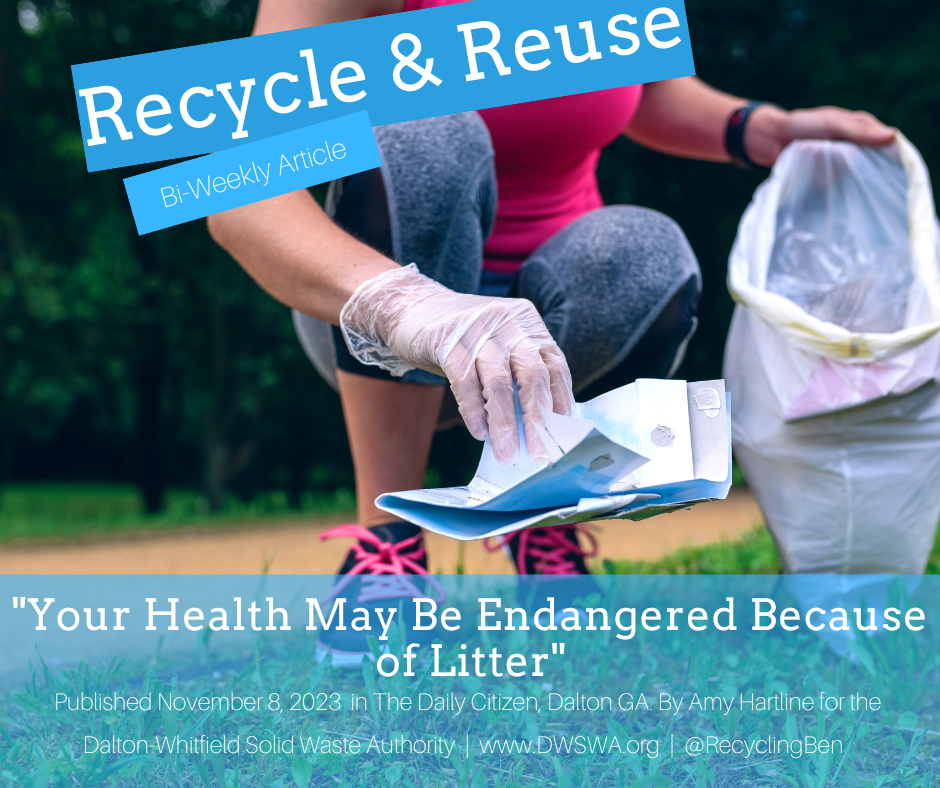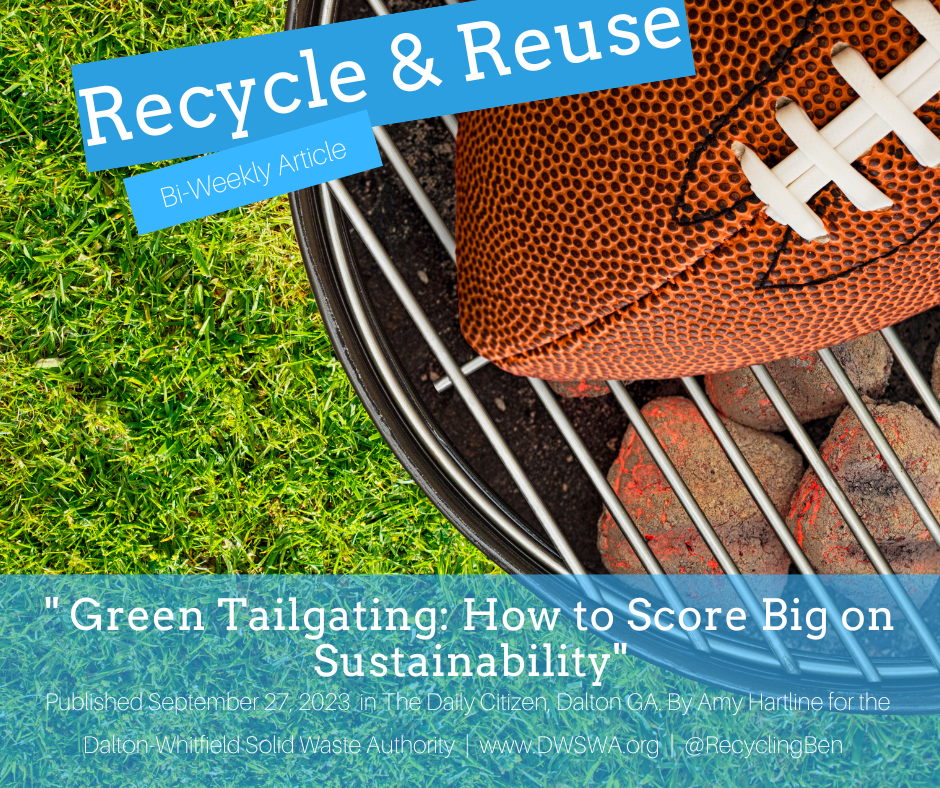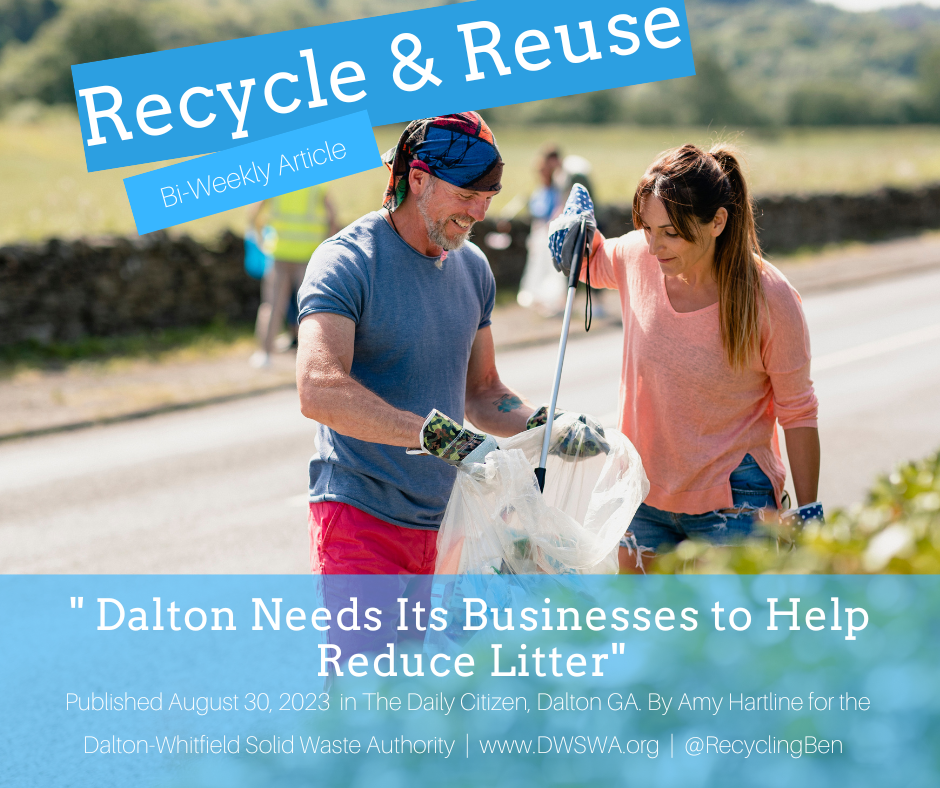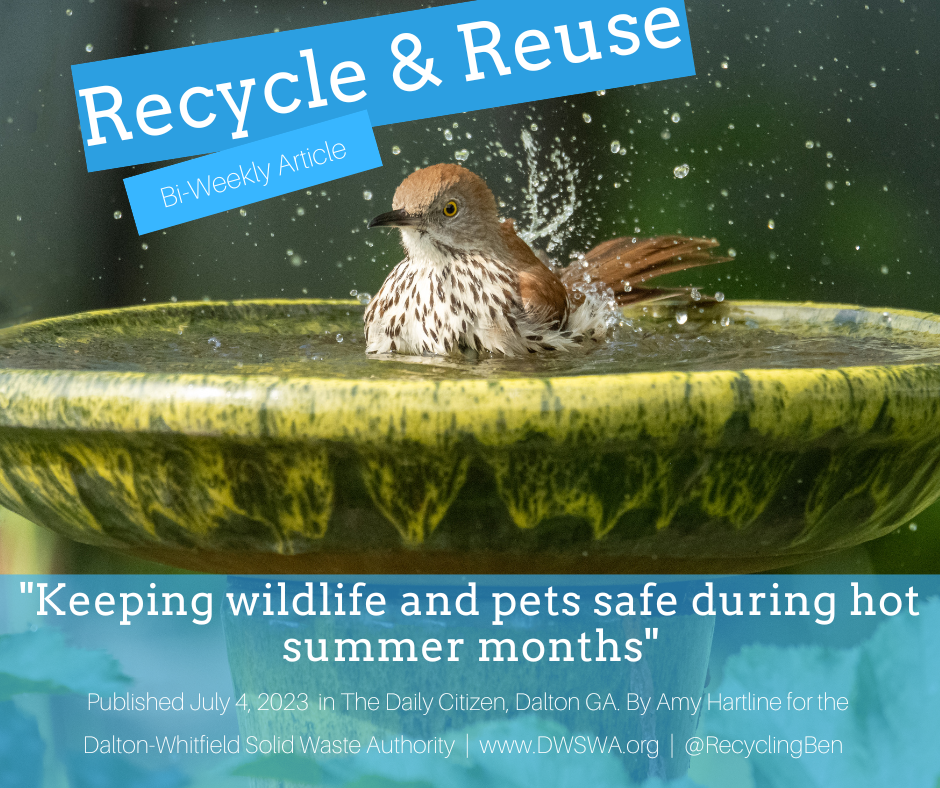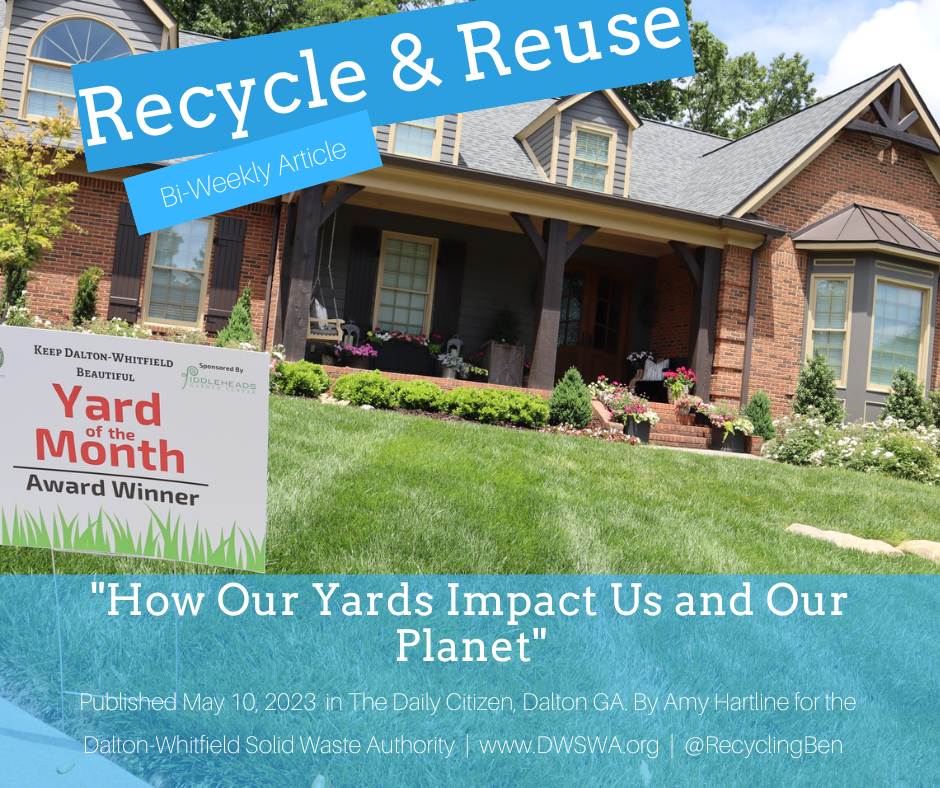How Our Yards Impact Us and Our Planet
/The great outdoors begins the minute you step out your front door, but, in recent years, yards have gotten a bad reputation, particularly because of their water consumption during times of drought. But well-planned yards that work with the environment and not against it can benefit both the family that enjoys it, the community that sees it, and the environment which depends on it.
In 2019, Keep Dalton-Whitfield Beautiful began recognizing a “Yard of the Month” in Whitfield and Dalton every month from May to November and now do so every year. It was started as way to show appreciation for residents that help make Whitfield County and Dalton beautiful through their well-designed yards that often take hard work and consideration. They often hear from neighbors how much seeing these yards everyday brings a smile to their face. Together, our yards cover a large portion of American land and if everyone took care of that land, we would see multiple benefits for our community and country.
Lush yards help decrease the heat island effect that makes urban areas hotter than they need to be. As we go into our warmer months, there is no doubt that heat will be at the top of all of our minds. Green lawns can be up to 31 degrees cooler than asphalt so enough lawns can help keep a community cooler overall especially in areas that are more urban like the center of Dalton.
Lawns don’t just help the ecosystem beneath your feet, but also the air around you. Grass from your yard can also capture dust, smoke particles, and other pollutants from the air creating a healthier community for all of us.
Grassy lawns can help handle storm water runoff which can help with flooding in sloped areas especially. As our rain patterns have been changing the past few years and more pavement is put down, our flooding continues to worsen. The grass uses that water before it becomes an issue and cleanses the rainwater of impurities and dust as it slows it down. These lawns can also remove six tons of carbon dioxide per acre every year in the same manner as forests, which we always see as environmentally important, do. The mere act of caring for your yard can help us create a healthy world and take care of it for future generations.
Many yards that have been awarded are teaming with birds, small mammals, and insects. This is because the flowers, berries, shrubs, and trees provide shelter and food for them. This is considered a “living landscape” and one winner has a yard that is even registered as a wildlife habitat certification. This is great for biodiversity, but it also leads to an enchanting experience in these gardens as butterflies float past and birds sing from the trees.
Your neighbors often appreciate the beauty and work almost as much as you do. A beautiful yard brings joy to those who see it. That joy can also be turned into value. Maintaining an aesthetic yard increases the property value of your home and a neighborhood of homes that all put effort into their yard raises the property value of all of the homes in that neighborhood.
The yards are not just pleasant to sit in, but can directly benefit the families. Having a beautiful outdoor space to enjoy improves happiness, lowers stress, and can help their physical health. A good number of the yards that have been “Yard of the Month” also have vegetable, fruit, or herbs growing in them. Growing your own food helps increase your access to them and often lead you to eating healthier because of the extra incentive to eat your vegetables, when you put months of work into growing them you want to enjoy the fruits of your labor!
Yards of the Month will receive recognition and a $50 gift certificate, courtesy of Fiddleheads Garden Center, for this year. If you would like to recognize someone who helps our community and planet by taking care of their yard, you may nominate it with the address at https://www.dwswa.org/yard-of-the-month or by calling in the address to 706-226-6211.


